Good economics for hard times
Livestream
Press
«Die Umsetzung schlechter Wissenschaft hat enorme Konsequenzen» Interview mit Abhijit Banerjee Schweizer Monat from 30.9.2022 lesen
'For many drivers, a gas tax feels like an unfair burden' Interview with Esther Duflo Tagesanzeiger from 28.6.2022 read
'With little money you could stop hunger' Interview with Abhijit Banerjee NZZ am Sonntag from 2.7.2022 read
'There is no formula for making a country prosperous' Interview with Esther Duflo NZZ from 22.6.2022 read
Nobelpreisträger Banerjee: «Mit wenig Geld könnte man den Hunger stoppen» Interview mit Abhijit Banerjee NZZ am Sonntag vom 2.7.2022 lesen
«Für viele Autofahrer fühlt sich eine Benzinsteuer wie eine unfaire Bürde an» Interview mit Esther Duflo Tagesanzeiger vom 28.6.2022 lesen
Esther Duflo, Prix Nobel d’économie: «Il n’existe pas de formule pour rendre un pays prospère» Interview d'Esther Duflo Le Temps du 24.6.2022 lire
«Es gibt nun mal keine Formel, wie man ein Land wohlhabend macht» Interview mit Esther Duflo NZZ vom 22.6.2022 lesen
Photo gallery

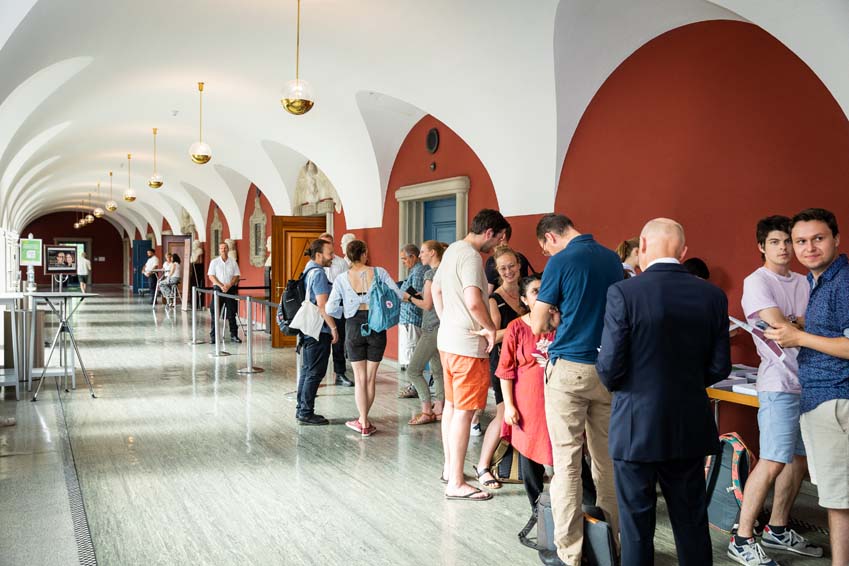
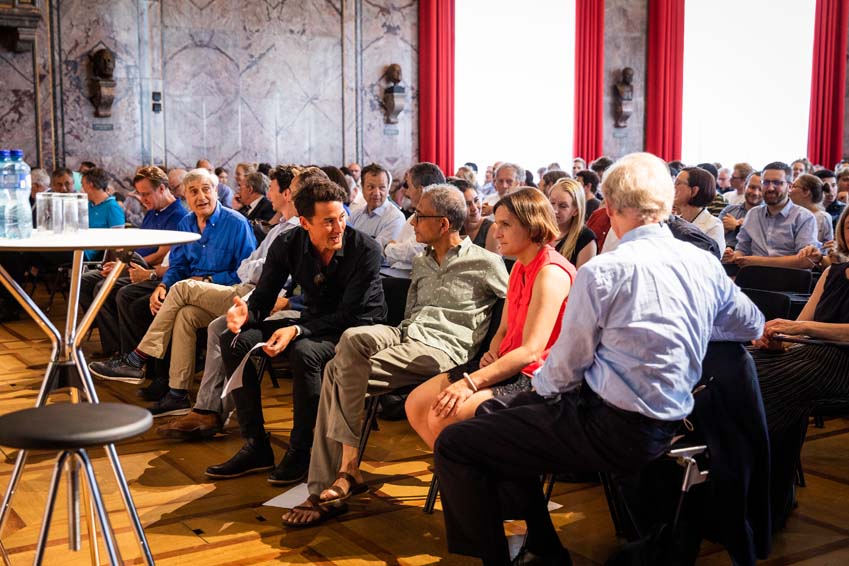
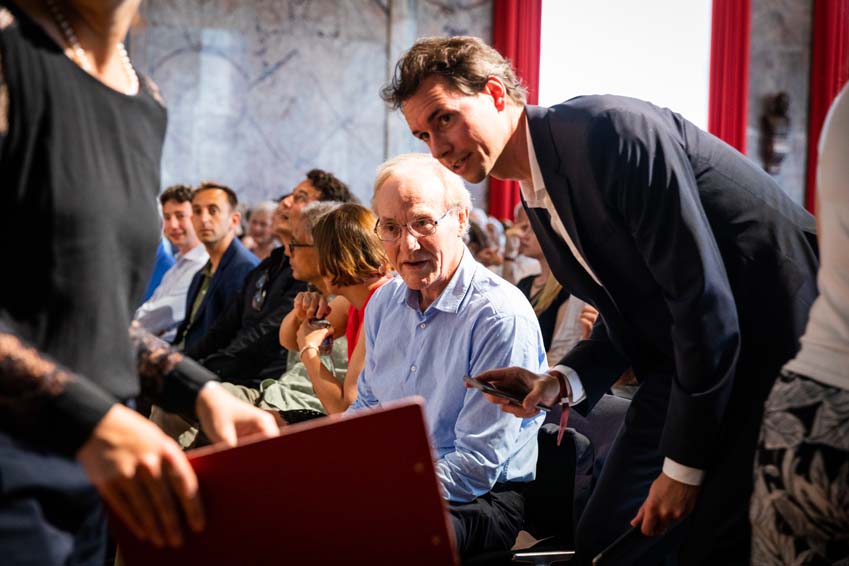
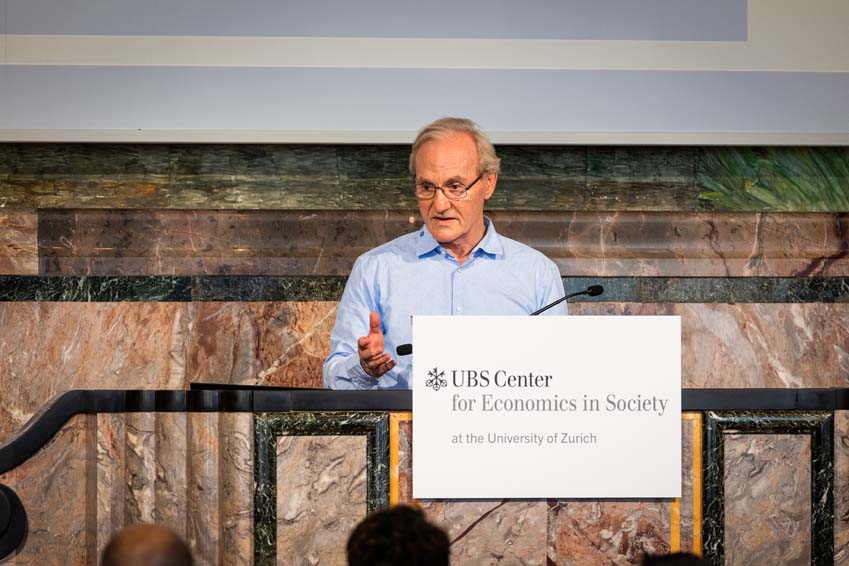
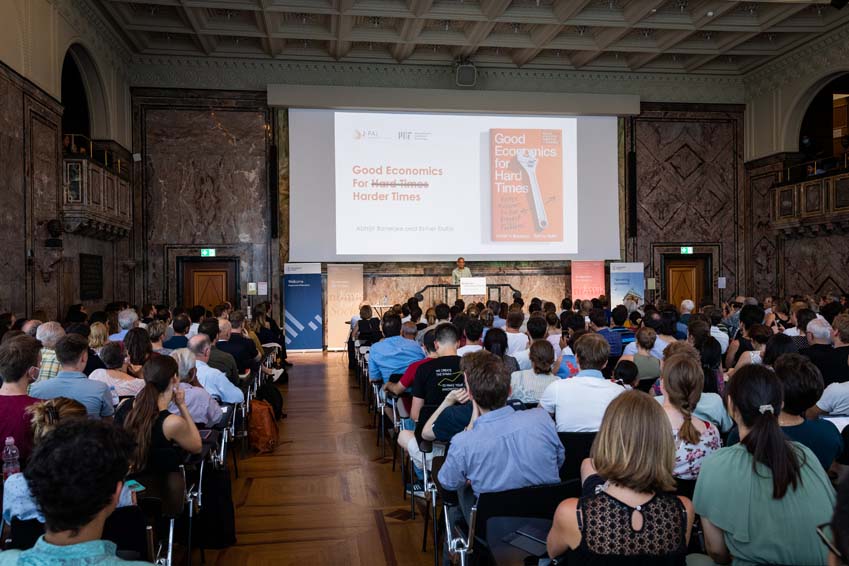
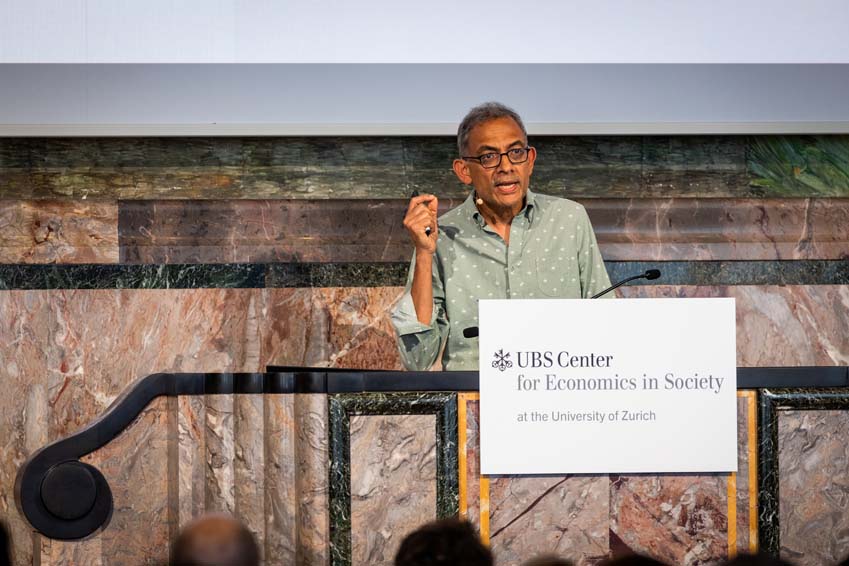
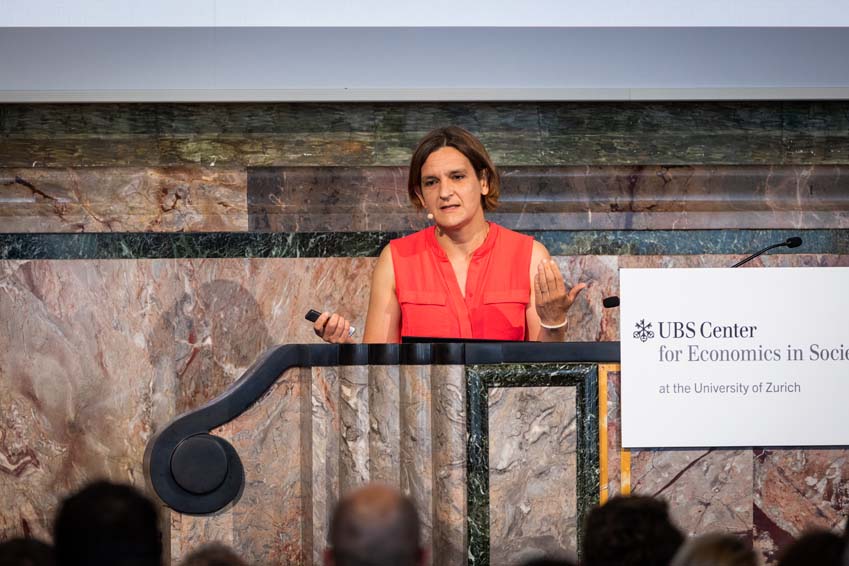
Better answers to our biggest problems
How can we alleviate inequality and poverty? This is the core question that Abhijit Banerjee and Esther Duflo have been addressing for years and the motivation behind their extensive research. Equipped with a broad experience in the field of development economics and the latest scientific findings, they dare to tackle the big questions of our time and are not afraid to bring up uncomfortable topics. Their latest book Good Economics for Hard Times is filled with personal anecdotes and experiences and provides a new perspective of policy debates that are shaping the discourse on today’s most pressing global problems: Immigration and inequality, globalization and technological disruption, slowing growth and accelerating climate change – these are sources of great anxiety across the world, from New Delhi and Dakar to Paris and Washington, DC.
Banerjee and Duflo are strong advocates of interdisciplinary approaches and criticize the economics profession’s obsession with growth, the shortcomings of using financial incentives to influence behavior, or the separation of economics, psychology, and communication. “Economics is too important to be left to economists,” is one of their famous quotes.
How can we alleviate inequality and poverty? This is the core question that Abhijit Banerjee and Esther Duflo have been addressing for years and the motivation behind their extensive research. Equipped with a broad experience in the field of development economics and the latest scientific findings, they dare to tackle the big questions of our time and are not afraid to bring up uncomfortable topics. Their latest book Good Economics for Hard Times is filled with personal anecdotes and experiences and provides a new perspective of policy debates that are shaping the discourse on today’s most pressing global problems: Immigration and inequality, globalization and technological disruption, slowing growth and accelerating climate change – these are sources of great anxiety across the world, from New Delhi and Dakar to Paris and Washington, DC.
Banerjee and Duflo are strong advocates of interdisciplinary approaches and criticize the economics profession’s obsession with growth, the shortcomings of using financial incentives to influence behavior, or the separation of economics, psychology, and communication. “Economics is too important to be left to economists,” is one of their famous quotes.
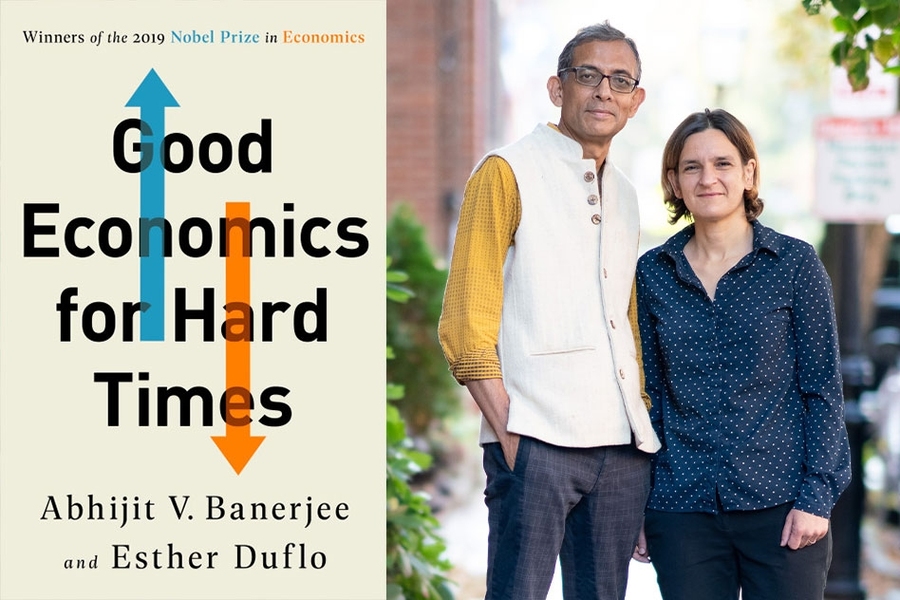
Program
| 18.00 |
Introduction Ernst Fehr (UBS Center, University of Zurich) |
| 18.05 |
Good economics for hard times Nobel laureates Abhijit V. Banerjee (MIT) and Esther Duflo (MIT) |
| 19.15 |
End of event |
| 18.00 |
Introduction Ernst Fehr (UBS Center, University of Zurich) |
| 18.05 |
Good economics for hard times Nobel laureates Abhijit V. Banerjee (MIT) and Esther Duflo (MIT) |
| 19.15 |
End of event |
Related videos
Speakers
Abhijit Banerjee is the Ford Foundation International Professor of Economics at the Massachusetts Institute of Technology. In 2003 he co-founded the Abdul Latif Jameel Poverty Action Lab (J-PAL) with Esther Duflo and Sendhil Mullainathan, and he remains one of the Lab’s Directors. Banerjee is a fellow of the National Academy of Sciences, the American Academy of Arts and Sciences and the Econometric Society. He is a winner of the Infosys Prize and co-recipient of the 2019 Sveriges Riksbank Prize in Economic Sciences in Memory of Alfred Nobel for his groundbreaking work in development economics research.
Esther Duflo is the Abdul Latif Jameel Professor of Poverty Alleviation and Development Economics in the Department of Economics at the Massachusetts Institute of Technology and a co-founder and co-director of the Abdul Latif Jameel Poverty Action Lab (J-PAL). In her research, she seeks to understand the eco- nomic lives of the poor, with the aim to help design and evaluate social policies. She has worked on health, education, financial inclusion, environment, and governance. Duflo has received numerous academic honors and prizes including 2019 Sveriges Riksbank Prize in Economic Sciences in Memory of Alfred Nobel (with co-Laureates Abhijit Banerjee and Michael Kremer).
Ernst Fehr received his doctorate from the University of Vienna in 1986. His work has shown how social motives shape the cooperation, negotiations and coordination among actors and how this affects the functioning of incentives, markets and organisations. His work identifies important conditions under which cooperation flourishes and breaks down. The work on the psychological foundations of incentives informs us about the merits and the limits of financial incentives for the compensation of employees. In other work he has shown the importance of corporate culture for the performance of firms. In more recent work he shows how social motives affect how people vote on issues related to the redistribution of incomes and how differences in people’s intrinsic patience is related to wealth inequality. His work has found large resonance inside and outside academia with more than 100’000 Google Scholar citations and his work has been mentioned many times in international and national newspapers.
Abhijit Banerjee is the Ford Foundation International Professor of Economics at the Massachusetts Institute of Technology. In 2003 he co-founded the Abdul Latif Jameel Poverty Action Lab (J-PAL) with Esther Duflo and Sendhil Mullainathan, and he remains one of the Lab’s Directors. Banerjee is a fellow of the National Academy of Sciences, the American Academy of Arts and Sciences and the Econometric Society. He is a winner of the Infosys Prize and co-recipient of the 2019 Sveriges Riksbank Prize in Economic Sciences in Memory of Alfred Nobel for his groundbreaking work in development economics research.
Esther Duflo is the Abdul Latif Jameel Professor of Poverty Alleviation and Development Economics in the Department of Economics at the Massachusetts Institute of Technology and a co-founder and co-director of the Abdul Latif Jameel Poverty Action Lab (J-PAL). In her research, she seeks to understand the eco- nomic lives of the poor, with the aim to help design and evaluate social policies. She has worked on health, education, financial inclusion, environment, and governance. Duflo has received numerous academic honors and prizes including 2019 Sveriges Riksbank Prize in Economic Sciences in Memory of Alfred Nobel (with co-Laureates Abhijit Banerjee and Michael Kremer).
Ernst Fehr received his doctorate from the University of Vienna in 1986. His work has shown how social motives shape the cooperation, negotiations and coordination among actors and how this affects the functioning of incentives, markets and organisations. His work identifies important conditions under which cooperation flourishes and breaks down. The work on the psychological foundations of incentives informs us about the merits and the limits of financial incentives for the compensation of employees. In other work he has shown the importance of corporate culture for the performance of firms. In more recent work he shows how social motives affect how people vote on issues related to the redistribution of incomes and how differences in people’s intrinsic patience is related to wealth inequality. His work has found large resonance inside and outside academia with more than 100’000 Google Scholar citations and his work has been mentioned many times in international and national newspapers.